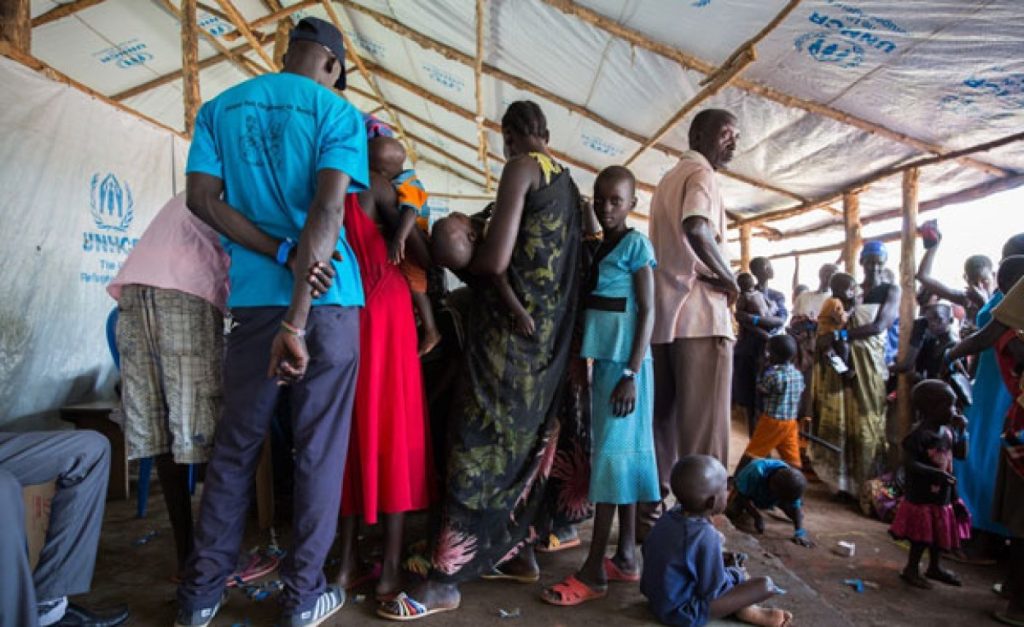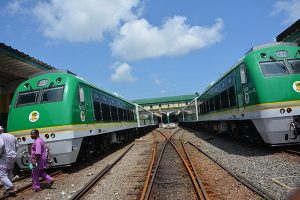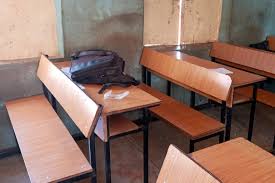Uganda’s Nearly 2 Million Refugees At Risk As Funds Run Low, Services Cut

Uganda is on track to host a record two million refugees by the end of 2025, as escalating conflicts in Sudan, South Sudan, and the Democratic Republic of the Congo push hundreds across its borders every day.But a deepening funding crisis is putting the country’s internationally lauded refugee response under unprecedented strain.
Since January, an average of 600 people a day have arrived seeking safety and basic aid, according to the UN Refugee Agency, UNHCR. Uganda already shelters 1.93 million refugees, the largest number in Africa and the third-highest globally. More than half are children, and over 48,000 have arrived unaccompanied.
“The numbers are staggering, but the stories are worse,” said Dominique Hyde, UNHCR’s Director for External Relations, who recently toured settlements housing Sudanese and South Sudanese refugees. “I met a 16-year-old girl caring for her four younger siblings after losing her parents. She dreams of returning to school, but survival is all she can think about.”
The country’s refugee policy is one of the most progressive in the world, granting arrivals the right to live, work and access public services. That openness, however, is colliding with the reality of dwindling emergency funds. UNHCR warns that without fresh financing, it will be forced to cut assistance to the equivalent of just $5 per refugee per month in 2025–less than a third of the $16 required to meet basic needs.
Malnutrition risks climb
The shortfall is already being felt in the field. Emergency funding is projected to run out by September, raising the prospect of more children dying from malnutrition, increased sexual violence against women and girls, and families going without shelter.
With food, water and medicine in shorter supply, malnutrition rates among children under five are climbing sharply. Refugee families are being pushed into painful trade-offs, such as taking children out of school or marrying off daughters to ease household burdens. Reports of gender-based violence are rising, as is the risk of suicide among refugee youth amid a drop in mental health services.
By late July, UNHCR said it had resources to provide cash and basic relief items to fewer than 18,000 individuals–covering only two months of new arrivals at the current pace.
“Uganda has opened its doors, its schools, its health centres,” Hyde said. “This model can work, but it cannot work alone.”
Uganda’s policy framework, often held up as a global model, aims to integrate refugees into host communities rather than confining them to camps. But local services, already stretched thin, are buckling under the weight of the influx. Rural districts along the borders have seen population spikes that strain water systems, classrooms, and clinics.
Economists warn that while refugees contribute labour and consumer demand, the immediate fiscal pressure on local governments is significant. International aid not only funds direct relief but also helps offset the cost of infrastructure, wages for teachers and health workers, and maintenance of shared facilities.
Currently, Uganda’s refugee response plan is just 25% funded. Without additional and sustained support from international donors and development agencies, aid officials say both refugees and host communities face worsening living conditions.
Global responsibility urgency
“War disrupts lives without warning, forcing people to leave everything behind,” Hyde said. “No resilience can replace what’s been lost. Uganda has shown extraordinary generosity, but the burden should not fall solely on communities far from the conflict. Responsibility lies with those driving and enabling the violence. Peace is the only lasting answer, but until it comes, the dignity of refugees must be protected.”
Uganda’s role as a safe haven is unlikely to diminish soon. Fighting in Sudan shows little sign of resolution, while parts of South Sudan and eastern Congo remain volatile. For Kampala, the challenge is not whether to continue its open-door policy–it has reaffirmed its commitment–but how to finance it without compromising its own social and economic stability.
UNHCR is appealing for urgent injections of funding, alongside longer-term partnerships with development banks, the private sector and humanitarian agencies, to prevent a humanitarian collapse. Officials say the cost of inaction will be measured not just in lives lost, but in the erosion of one of the world’s most progressive refugee models.
By Independent (Kampala).



